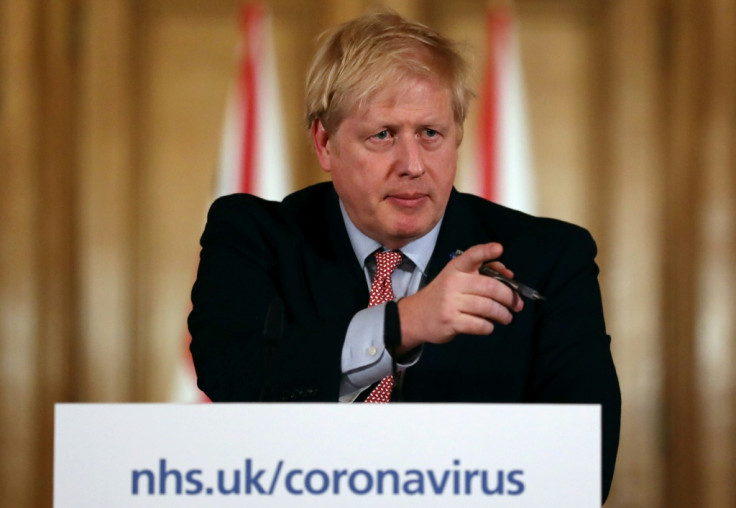UK urges end to 'non-essential' contact, travel to curb virus spread
Prime Minister Boris Johnson said more stringent restrictions would follow in the coming days for those with serious health conditions.
Britain on Monday stepped up its response to coronavirus, recommending household isolation, home-working and an end to mass gatherings to try to stem an accelerating outbreak.
Prime Minister Boris Johnson said more stringent restrictions would follow in the coming days for those with serious health conditions to retire from society entirely for three months.
The government, which has been criticised for its light touch approach to the pandemic, said however that it was still not the time to close schools.
More than 1,500 cases have been confirmed in Britain and 53 people have died. But health officials said last week the number of infections could be as high as 10,000.
"Without drastic action, cases could double every five or six days," Johnson told reporters in what will become a daily press conference on the outbreak.
The Conservative leader said London was worst hit and urged its residents in particular to heed advice to work from home and avoid pubs, clubs and theatres.
"Now is the time for everyone to stop non-essential contact with others and to stop all unnecessary travel," he said in a message to everyone in Britain.
The new advice also states that people should stay inside their homes and limit social contact for 14 days if any member of the household displays symptoms of the disease -- a new persistent cough or fever.
"This advice about avoiding all unnecessary social contact, is particularly important for people over 70, for pregnant women and for those with some health conditions," the prime minister said.
Johnson, flanked by his scientific experts, said the UK was "approaching the fast growth part of the upward curve" of the outbreak.

He said even tougher measures would be announced in the coming days, including isolating people with the most serious health conditions for 12 weeks.
Johnson acknowledged that the government was asking for "very substantial change in the way we want people to lead their lives", adding it was "unprecedented" in peacetime.
Many of Britain's European neighbours have already sealed borders and closed schools.
But Johnson said that "on balance it's much better if we can keep schools open", amid concerns of the impact on the workforce, particularly healthcare staff, but said this would be kept under review.
Last week, the government said it would not be testing people with mild symptoms, saying that they should simply wait out the virus at home.
But after the World Health Organisation (WHO) on Monday emphasised the importance of tests, Johnson and the medical experts insisted they were still doing this.
More than 44,000 people have been tested so far and testing will be to be increased in the coming weeks.
Chris Whitty, the chief medical officer for England said it was "absolutely critical", adding: "We do intend to continue to scale up testing."
He added that restrictions will remain in place for some time, saying that tackling the outbreak "is going to be a marathon, not a sprint".
Copyright AFP. All rights reserved.
This article is copyrighted by International Business Times, the business news leader





















